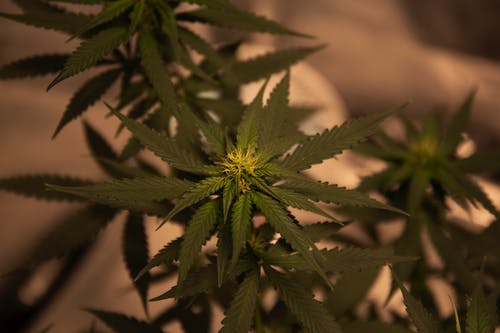
What Are Medical Marijuana’s Positive Therapeutic Effects?
Marijuana is currently permitted in 18 states, with 37 states allowing medical marijuana. Medical marijuana has been used to treat various illnesses, including cancer and neurological disorders. The following are five key benefits of marijuana use, according to doctors. Continue reading to learn more about how you can protect your health and the health of others.
Cannabis’s Potential Medical Benefits
As mentioned below, medical marijuana from a weed store in Edmond treats a wide range of physical and mental health issues.
Relieves Insomnia
Various circumstances can cause insomnia; thankfully, cannabis can help by addressing the underlying issue. Assume you’ve been exhausted all day and want to sleep at night. Sativas will keep you energetic while also reestablishing your sleep pattern in this case. Indica strains may be preferable for those who have trouble relaxing before sleeping. Indica strains have a calming effect that helps insomniacs relax and sleep. Cannabinol (CBN) has a sedative effect that improves sleep patterns greatly.
Assists With a Lack of Appetite
Hunger is important because it pushes us to keep our bodies supplied. Despite this, many people suffer from chronic pain, HIV, and cancer, and they lose their appetite due to their drugs, physical condition, and agony. Medication used to treat disease and pain can raise leptin levels, act as an appetite suppressant and cause patients to lose interest in eating. Marijuana aids with appetite restoration by suppressing leptin synthesis after consumption. Tulsa marijuana also aids cancer patients in dealing with nausea and pain caused by chemotherapy.
Cancer Prevention
According to the ACCR (American Association for Cancer Research), pure THC and CBD work effectively with irradiation to reduce tumor volume. According to the AACR, combining these cannabinoids can improve radiation treatment response. Cannabinoids have also been shown to reduce cancer progression and prevent tumor formation.
Management of Multiple Sclerosis Pain
Multiple sclerosis can be excruciatingly painful, intellectually debilitating, and inflaming. Doctors can prescribe cannabis to treat these symptoms to reduce pain and inflammation while also improving concentration. THC and CBD bind to brain receptors, preventing the transmission of pain signals. CBD contains anti-inflammatory properties and can operate on many receptor systems to protect against unpleasant symptoms.
Prevent the Onset of Alzheimer’s Disease
THC may be used to treat Alzheimer’s disease, according to a 2014 study. Amyloid proteins, the primary cause of Alzheimer’s disease, were less synthesized in response to a low dose of THC. THC prevents the production of disease-causing enzymes, according to a study on Alzheimer’s disease prevention published in 2006.
Arthritis Relief
Arthritis manifests itself in various ways, but they all have the same underlying condition of pain and swelling in common. Cannabis from an Oklahoma marijuana dispensary is well-known to quickly relieve pain and inflammation throughout the body. CBD can be applied topically to arthritic areas to reduce inflammation and pain without having any negative side effects.
PTSD Therapy
Marijuana has been authorized for the treatment of PTSD in the United States. Cannabis may provide relief to many soldiers suffering from post-traumatic stress disorder. The characteristics of cannabis aid in controlling the neurological system, which is responsible for dread, anxiety, and nightmares. Researchers studied patients using synthetic cannabis in 2009 and discovered significant reductions in nightmare intensity, everyday flashbacks, and night sweats. Cannabis has also been found to improve the duration and quality of sleep in people suffering from post-traumatic stress disorder (PTSD).
To Sum It Up
Numerous cannabis research is currently being undertaken. Experts are studying the plant and the substances it produces to see if they have therapeutic use. Even though more states have legalized cannabis and the US Food and Drug Administration has authorized cannabidiol for epilepsy therapy, public opinion on medicinal marijuana remains divided. The argument over cannabis’s advantages and legality is far from done. However, the decision to use or abstain from this substance is ultimately yours.


